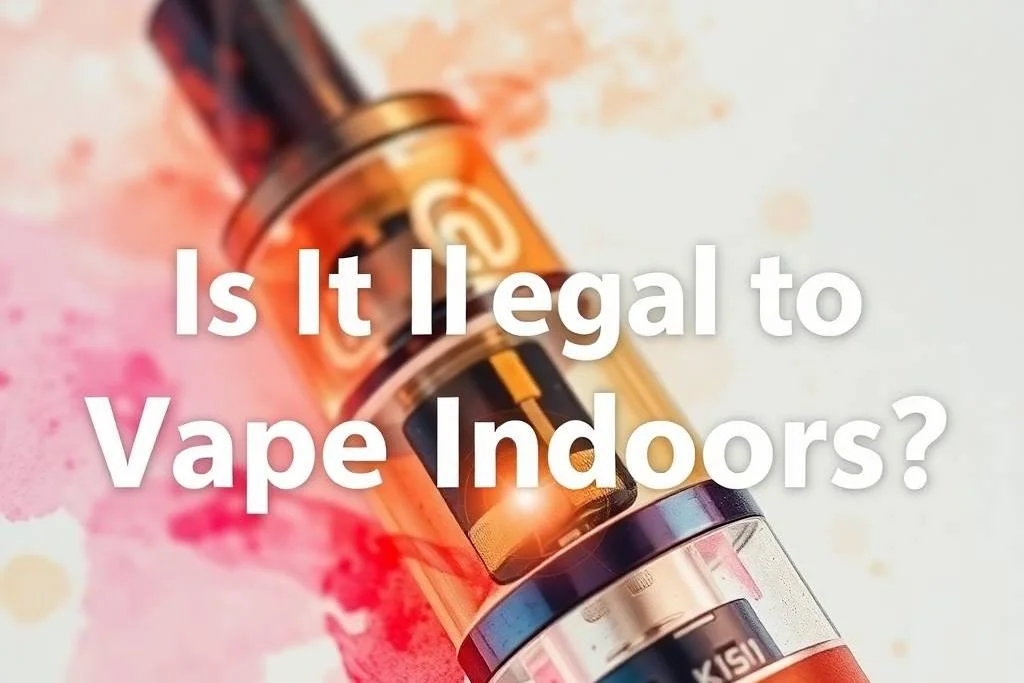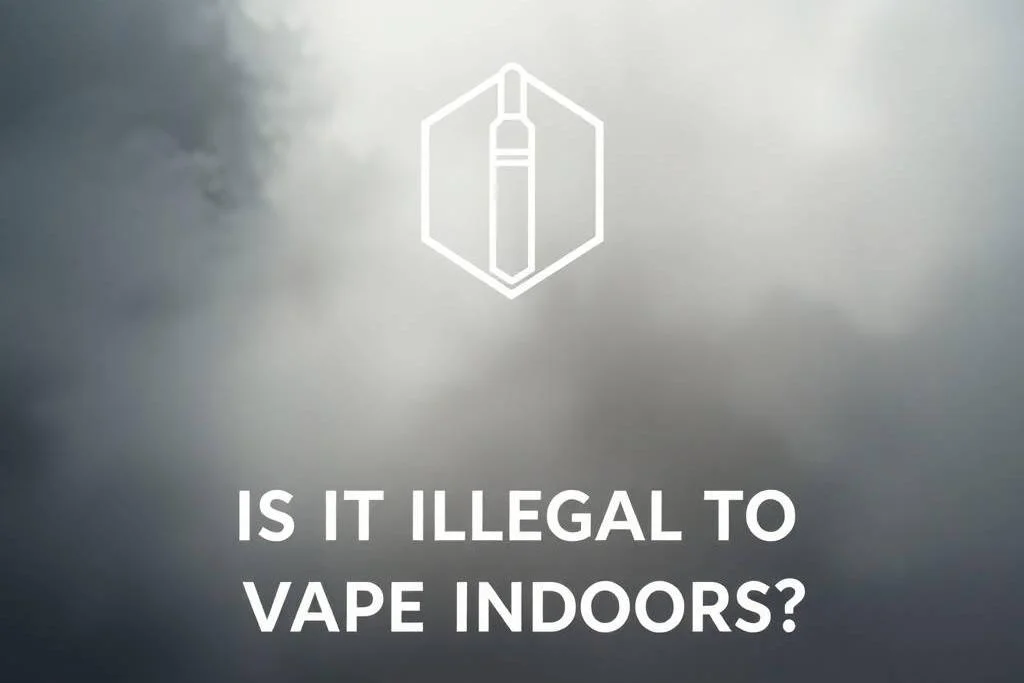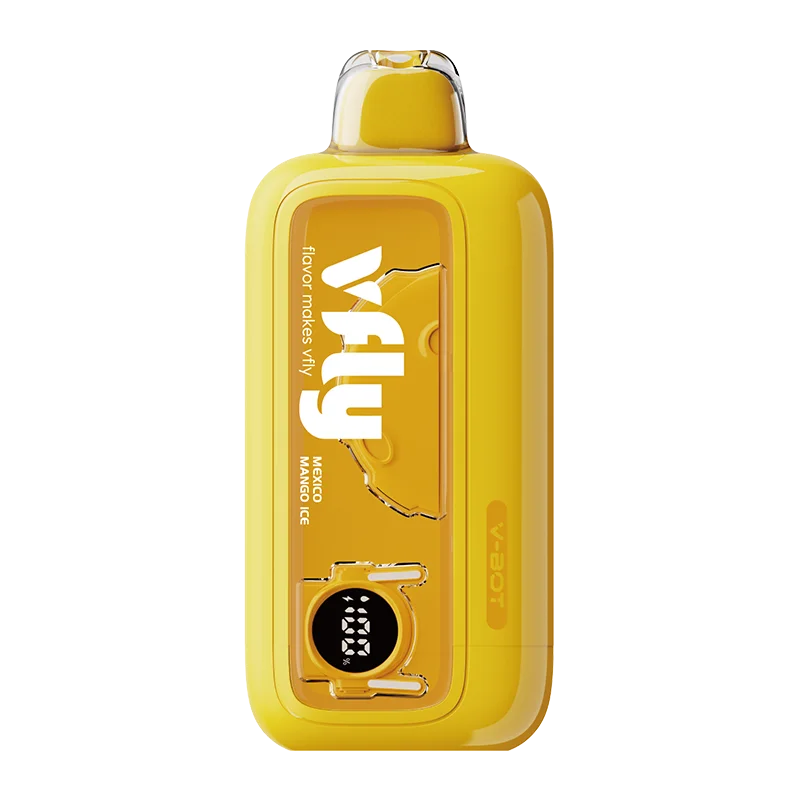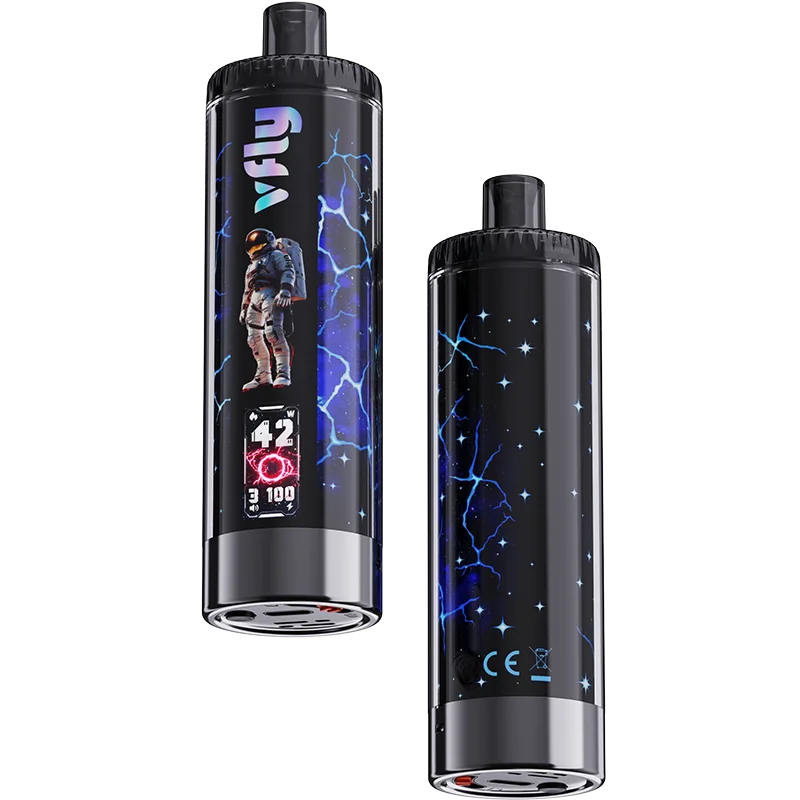Is It Illegal to Vape Indoors?
As vaping continues to grow in popularity, one of the most common questions asked by users and business owners alike is: “Is it illegal to vape indoors?” The answer isn’t as straightforward as you might think. In this guide, we’ll break down current indoor vaping laws, how they vary by location, and what vapers should know before lighting up their device indoors.
Understanding Indoor Vaping Laws
Unlike traditional tobacco smoking, vaping laws are relatively new and can vary dramatically depending on the region. While some places treat vaping similarly to smoking, others offer more relaxed regulations—or none at all. Most indoor vaping bans fall under broader smoke-free legislation that’s been updated to include e-cigarettes and vapes.

Is It Illegal to Vape Indoors in the U.S.?
1. Federal Law
There is no federal law in the United States that outright bans vaping indoors. However, certain federal buildings and transportation systems (such as airplanes, buses, and Amtrak trains) have their own strict no-vaping policies.
2. State and Local Laws
Many U.S. states and cities have implemented their own restrictions. As of 2025:
- California, New York, and Massachusetts ban vaping in most indoor public places, including restaurants, bars, and workplaces.
- Florida and Texas allow business owners to set their own indoor vaping policies unless the area is covered by local ordinances.
- Chicago, Seattle, and Boston enforce strict no-vaping rules in indoor public settings.
In general, if an establishment has a smoke-free policy, vaping is likely prohibited as well.
Vaping Indoors in Private Spaces
1. At Home
Vaping in your own home is legal unless prohibited by lease agreements or homeowners’ associations. However, secondhand vape exposure concerns have prompted some property managers to add vaping clauses to no-smoking policies.
2. In Hotels and Airbnbs
Many hotel chains and Airbnb hosts treat vaping like smoking. If smoking is banned, assume vaping is too—violating this could result in cleaning fees or removal from the premises.
3. In Vehicles
There are no nationwide laws banning vaping in private vehicles, but several states restrict vaping in cars when minors are present.
How to Know If Vaping Indoors Is Allowed
- Look for Signage: Many establishments display signs that say “No Smoking or Vaping.”
- Ask Staff or Management: If unsure, always ask before using a vape indoors.
- Check Local Laws: Some municipalities have very specific vaping ordinances.
- Refer to State Guidelines: Government health department websites often list public vaping rules.

Why Are Indoor Vaping Bans Increasing?
Indoor vaping bans are often justified for the following reasons:
- Secondhand Vapor Exposure: While less harmful than smoke, studies suggest e-cigarette aerosol may contain nicotine, ultrafine particles, and volatile organic compounds.
- Public Health Concerns: Officials are cautious due to the long-term health effects of vaping being unclear.
- Enforcement Consistency: Banning both smoking and vaping simplifies enforcement for business owners and health departments.
Summary: Is It Illegal to Vape Indoors?
| Location Type | Legality of Vaping Indoors |
|---|---|
| Federal Buildings | Illegal |
| State-Level (Varies) | Depends on specific state or city law |
| Private Homes | Legal (unless lease prohibits it) |
| Restaurants/Bars | Typically illegal in smoke-free jurisdictions |
| Hotels/Airbnbs | Usually prohibited if smoking is banned |
| Vehicles | Legal unless minors are present in some states |
| Workplaces | At employer’s discretion |
Conclusion
So, is it illegal to vape indoors? In many cases—yes, especially in public places governed by smoke-free laws. However, legality depends heavily on your location and the specific property owner’s policies. When in doubt, check local regulations or simply step outside.
Staying informed helps ensure you respect the law and those around you while enjoying your vape responsibly.



